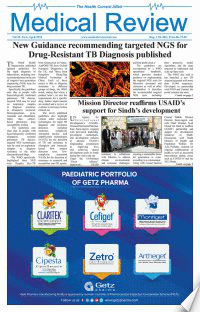Expert at an Ophthalmology Conference has said that thousands of people are facing loss of vision annually due to diseases such as cataract glaucoma, which can be prevented by avoiding and controlling diabetes, hypertension, quitting smoking and timely treatment.
The 4th Pioneering Innovations in Ophthalmology (PIO) Conference was organized by Hashmanis Group of Hospitals and Ophthalmic Society of Pakistan (OSP) recently at a hotel in Karachi. Prominent Ophthalmologists from entire Pakistan spoke at the conference and discussed different aspects of innovations in the treatment of eye diseases, use of modern techniques including Optical Coherence Tomography and observed that through latest imaging techniques and machine-assisted technology, complicated surgeries could easily be performed now to save vision of thousands of people in the country.
Speaking as the chief guest on the occasion, Director General, College of Physicians & Surgeons Pakistan (CPSP) Prof. Khalid Masood Gondal said Pakistan was facing acute shortage of trained and qualified ophthalmologists as against the required number of 100,000 ophthalmologists, Pakistan only had 30,000 ophthalmologists at the moment while there were only a few hundred specialists in the emerging field of pediatric ophthalmology.
He informed that as per World Health Organization (WHO) recommendations, we need at least 100,000 trained and qualified ophthalmologists but currently we only have 30,000 eye specialists in the country. He claimed that CPSP was trying its level best to overcome the shortage of eye specialists by motivating young doctors in the field of ophthalmology. Female doctors were enthusiastically joining the field of ophthalmology and urged them to get specialization in the emerging field of pediatric ophthalmology to prevent blindness among children.
Eminent ophthalmologist Prof Sharif Hashmani said diabetes had emerged as the leading cause of loss of vision among Pakistanis where more than 25 percent diabetics were losing their vision due to uncontrolled diabetes and its complications. There are over 26 percent diabetics in Pakistan, of which 25 percent lose their vision due to diabetes and its complications. Fortunately, diabetes is an avoidable disease or it can be managed and controlled through medicines and healthy lifestyle.
He urged people to adopt healthy lifestyle to avoid having diabetes and hypertension, the biggest cause of blindness in Pakistan at the moment and urged people to approach trained and qualified doctors in case of any vision related problems as most of the eye diseases were now treatable in Pakistan.
Dr. Misbahul Aziz, President, Pakistan Islamic Medical Association (PIMA) President said cataract was another common cause of blindness in Pakistan whose causes were aging, diabetes, hypertension and smoking and urged people to approach doctors before it gets too late and people start losing their vision at the hands of a easily treatable disease.
Later on, several other experts also spoke on various techniques including OCT usage in prevention of blindness while young doctors from different public and private medical Universities and colleges attended the moot in a large number.
The conference was also addressed by Prof. Maj. General (Retd) Mazhar Ishaq, Prof. Shoaib Shafi, Prof. Fawad Rizvi from LRBT, Dr. Sami Memon, Dr. Rehan Siddiqui, Dr. Amer Awan who spoke on various techniques including OCT while young doctors from different public and private medical universities and colleges also attended the conference.
On the occasion, a gold medal was awarded to eminent ophthalmologist and eye specialist, Dr. Niaz Ahmed for his services in the field of ophthalmology, especially for performing over 9500 corneal transplants while a young doctor from the Aga Khan University Hospital (AKUH), Dr. Sidra Zafar, was given cash prize for presenting the best paper at the Conference.


